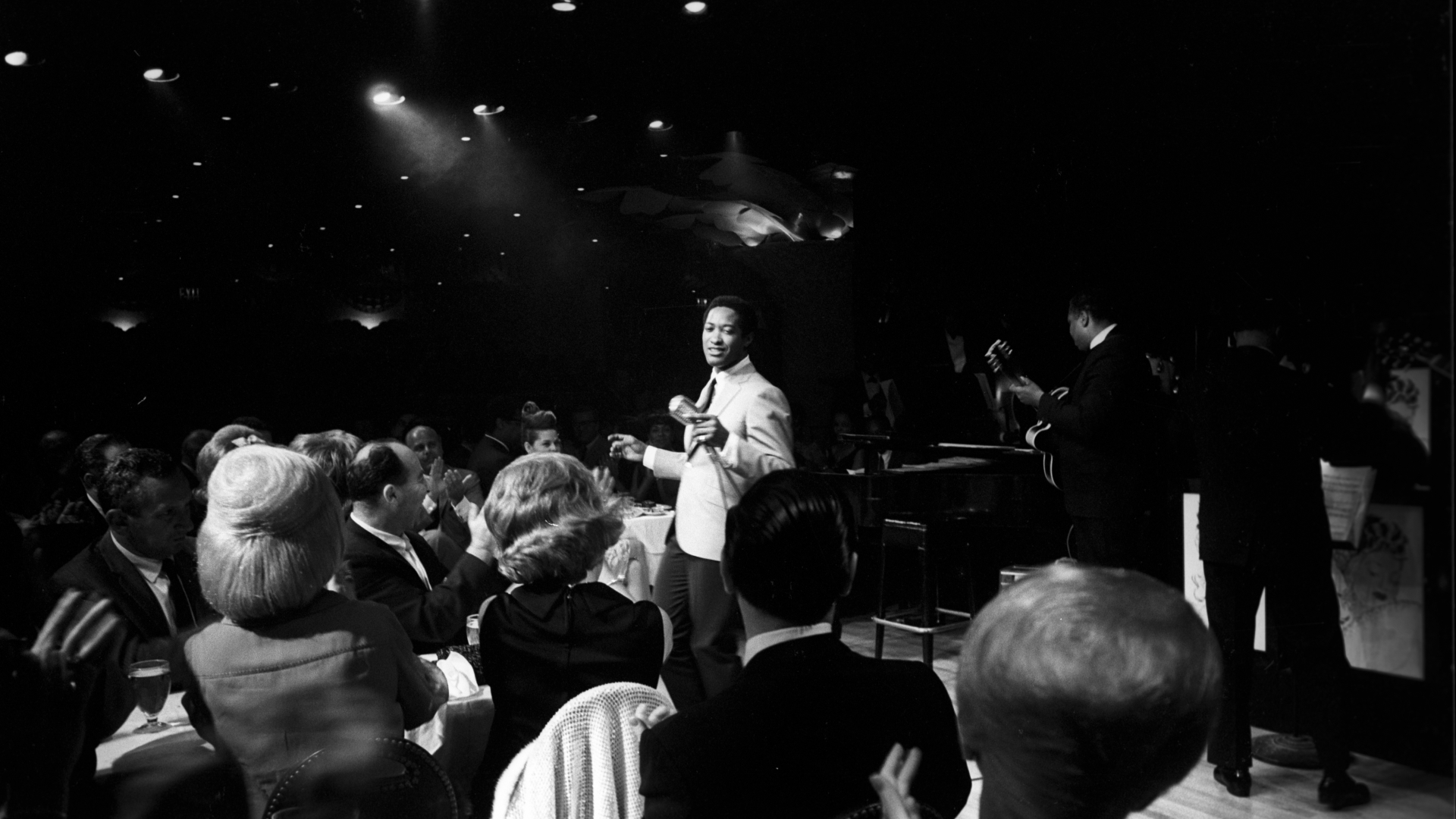Nicole Cooke Keeps Sharing the Good News
Sam Cooke’s granddaughter reflects on the soul legend’s legacy as more of his music gets remixed in Dolby Atmos.
by Brad Farberman
In 1967, on I Never Loved a Man the Way I Love You, Aretha Franklin covered Sam Cooke’s “A Change Is Gonna Come,” only three years after the release of the civil rights anthem. And on the 1966 album Complete & Unbelievable: The Otis Redding Dictionary of Soul, Redding recorded versions of “Tennessee Waltz” and “Try a Little Tenderness,” songs Cooke had included on his 1964 LP Sam Cooke at the Copa. (Redding also brought “A Change Is Gonna Come” into the studio in 1965, and Aretha also featured Cooke’s “Good Times” on I Never Loved a Man.) The songs Cooke recorded in his final year, 1964, had a near-immediate impact — his peers didn’t hesitate to try them out. Marking their 60th anniversaries, both Ain’t That Good News and Sam Cooke at the Copa are now available in Dolby Atmos mixes; the early 2000s compilations Keep Movin’ On and Portrait of a Legend 1951-1964 join them there. Nicole Cooke, the singer’s granddaughter and estate CEO, credits some of the energy behind Sam’s work to the universality of music in general, and his understanding of that principle.
“One of the many ideologies that we use in taking on his legacy is that there’s a transformative power in music,” says Cooke. “Music all over the world, all languages, all colors, all races, all genres. It’s healing. It helps fight against inequities and inequalities. It helps you speak. It helps you have a voice. It spreads messages. But it also heals. It also marks time. It’s the soundtrack of what’s going on for us. And so how intentional he was about that, and helping other young artists see their power in that.”
The appeal of Sam’s music also stems from his lack of pretension. Lyrics — like the ones from the Ain’t That Good News hit “Another Saturday Night” — came straight from his own life, and the people he’d interact with.
“Sam was very open about talking about his songwriting process, and talking about it being based on very real world, very real life, which is why I think his songs have been very long living,” says Cooke, who goes on to share a portion of Sam’s 1964 interview with Don Paulsen. “A quote from him is, ‘I use phrases people say each day. Once I heard a guy saying, “Another Saturday night and I ain’t got nobody.” That gave me an idea for a song. At a party, I’ve heard a kid say, “Everybody, come on, cha cha cha.” That gave me another idea. I keep my ears open.’”

Ain’t That Good News and Sam Cooke at the Copa offer a glimpse into the mid ’60s, but Portrait of a Legend 1951-1964 takes us to the decade prior. In the ’50s, before his solo career began, Cooke was in gospel group the Soul Stirrers, which featured Stax vocalist Johnnie Taylor after Cooke left. Two of the Stirrers songs on Portrait — “Touch the Hem of His Garment” and “Lovable” — were written by Cooke. (“Lovable” was co-written with Tony Harris.)
“He said that from a small boy, before even being with the Soul Stirrers, that my grandfather used to sing to popsicle sticks in the yard,” says Cooke, recalling an anecdote from Peter Guralnick’s biography Dream Boogie: The Triumph of Sam Cooke. “And he’s like, ‘Yeah, I’m going to sing to big, large crowds of people. I’m just practicing.’ I think that from day one — my grandmother says that too — from day one, he was destined, and he somehow knew that. And I think that the Soul Stirrers days was just a fingerprint on that destiny, that I think that he saw very early on. I think that him using that move … I mean, the Soul Stirrers was very intricate in him formulating who he would be as an artist, and I think that that’s where he then began to see the vision come to life himself as well.”
“A Change Is Gonna Come,” which opened side two of Ain’t That Good News, remains both timeless and pertinent, revered but still necessary. Its message of hope, and willingness to confront injustice, resonate just as much today.
“I’ve seen people who don’t speak the language send us footage from across the countries, across the seas, and people fighting with the song as an overture,” says Cooke. “I’ve seen small struggles, and people relate to the song as an overture because that message of change is constant. And I think that Sam’s ability to write music that was true to a message, that was true to a people, there isn’t an expiration date, right? As long as people are here, that message needs to be heard.”



